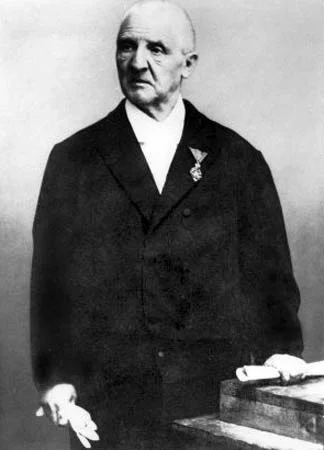Anton Joseph Bruckner
Christus factus est pro nobis obediens usque ad mortem,
mortem autem crucis.
Propter quod et Deus exultavit illum,
et dedit illi nomen,
quod est super omne nomen.
And being found in fashion as a man, he humbled himself, and became obedient unto death,
even the death of the cross.
Wherefore God also hath highly exalted him,
and given him a name
which is above every name.

- Josef Anton Bruckner (4 September 1824 – 11 October 1896)
- Bruckner suffered from numeromania, a condition that saw him count the leaves on trees and the windows in buildings. Ken Russell made a film about it for the South Bank Show, entitled ‘The Strange Affliction of Anton Bruckner’.
- He wrote eleven symphonies, ten of which he completed. Confusingly, No. 8 is the last one he finished, as he relegated two works to No. 0 and No. 00. No. 9 is incomplete, but among his greatest works.
- Knowing which edition to perform is a constant headache for conductors, as Bruckner revised every one of his symphonies up until his death.
- Bruckner was a fine organist and one of the greatest improvisers. Sadly or organists, he wrote nothing of note for the instrument.
- Bruckner only started composing seriously from the age of 37, a couple of years older then Mozart was when he died.
- At his request, Bruckner was buried under the organ at St Florian, where he served from the age of 24 for seven years. - Bruckner never married, despite proposing to several women. It’s thought he went to the grave a chaste man.
- Each of Bruckner’s symphonies is huge in scope and ambition – Brahms called them symphonic ‘boa constrictors’.
- Bruckner’s music has suffered from associations with Hitler, whose favourite Symphony was No. 7. It was played on German radio following his death in 1945. - A nervous breakdown struck Bruckner in 1866, for which he spent three months in a sanatorium.


